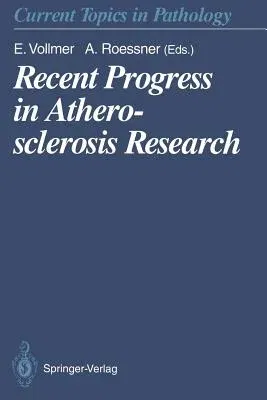During the past years a considerable number of books have been published
on atherosclerosis research. Much attention has been focused on the
biochemical properties of lipoproteins and the involvement of
lipoprotein metabolism in the atherogenic process. The monograph
presented here focuses on morphologic studies of atherosclerotic plaque.
One chapter deals with the pathobiochemical changes in the arterial wall
at the inception of atherosclerosis. Recently the specific role of macro
phages in atherogenesis has been the object of much interest. A
morphological study of their role and differentiation is the topic of
another chapter. This is complemented by a study of lipoprotein
receptors on macrophages and smooth muscle cells both in cell culture
and in situ, based on electron microscopic investiga tions. An
immunohistological study on the in situ localization promotes our
understanding oflipoprotein metabolism in the arterial wall. The
morphologic aspects of more advanced lesions are present ed in studies
of collagens and angiogenic processes in the athero sclerotic vessel
wall. Experimental investigations have also been useful for
understanding the pathogenetic aspects of atherosclerosis; one crrapter
concentrates on the metabolism of fibromuscular and atheromatous plaques
in an experimental model. A final chapter deals with transplant
arteriopathy and its possible parallels with conventional
atherosclerosis. The widespread discussion of athero genesis is focused
on the arterial wall and its morphological alter ations, emphasizing
once again the importance of morphological research for understanding
the pathological basis of disease. Borstel and Magdeburg E. VOLLMER and
A."


